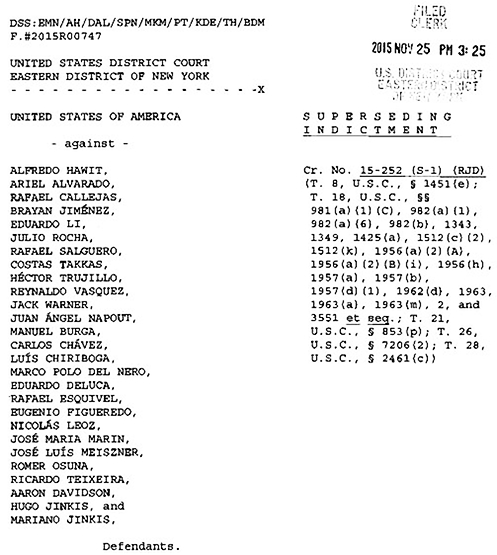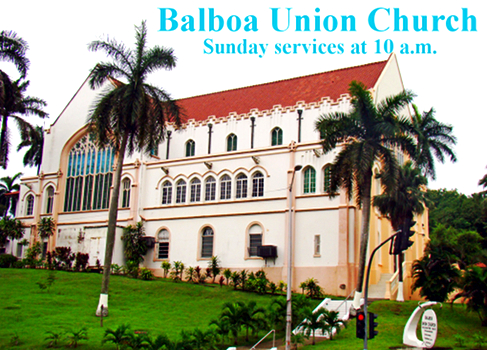
Corruption wins a round: judge throws out bribery charges against former soccer boss
by Eric Jackson
Starting in May of 2015, the US Department of Justice began to feed data to their counterpart, Panama’s Public Ministry, about persons and institutions in Panama that were involved in a series of bribery, kickback and money laundering schemes to enrich themselves by siphoning off some of the proceeds from the enormously profitable worldwide soccer scene. These schemes were carried out via its global governing body FIFA and various regional institutions that include CONCACAF, the federation for North America, Central America and the Caribbean.
(Is it proper journalism to say “allegedly” here? As to certain parties, perhaps. But a string of convictions, many on guilty pleas, erases any real doubt that these schemes and criminal acts to further them actually did happen.)
One of several points touching upon Panama and its federation was the claim that in 2010 and 2011 Ariel Alvarado, then president of the Panamanian Football Federation (FEPAFUT) and holder of various positions in CONCACAF and FIFA, had in a division of graft turf with other international soccer officials and corrupt companies arranged to take a bribe. A company called Traffic USA would pay a bribe of $70,000 to Ariel Alvarado to get the broadcast rights for Panama’s ultimately unsuccessful campaign to qualify for the 2014 World Cup, which was held in Brazil. The payment was routed through law firms, front companies and financial institutions in Miami and Panama, but Uncle Sam had the electronic mney trail all recorded. With some top FIFA officials charged and flipped to turn state’s evidence, then a series of raids in several countries, most notably Switzerland and the United States, a damning case was assembled against Alvarado.
But word was out that charges were coming down and Alvarado stayed put in Panama, whose constitution forbids the extradition of citizens to other countries.
Fair enough. Selling out our beloved Marea Roja for a bribe is also a crime here. Information was forwarded to Panama, whose prosecutors took nearly two years to bring Panamanian charges in April of 2017. Alvarado was jailed pending trial on bribery, fraud, money laundering and conspiracy charges.
But 18th Penal Court Judge Baloisa Marquínez has thrown out all but the money laundering charges. The $70,000 payment took place in a July 21, 2010 bank transfer, and she ruled that under the statute of limitations, the formal investigation of this crime began too late. Money laundering is under different rules and in any case appears to be have continued well after the bribe was paid, so those charges remain outstanding. But it is almost unheard of for any Panamanian to be convicted of money laundering in Panama.
Prosecutors were given three days to appeal the case’s dismissal and said that they would do so.
The US charges against Alvarado are still outstanding, which will likely keep him in Panama because if he goes to a third country he might be arrested on an INTERPOL warrant and extradited to the United States. One big difference between US and Panamanian law is the existence of tolling statutes to offset statutes of limitation. If a defendant is a fugitive, or in a jurisdiction beyond the court’s reach, or if she or he has concealed a crime for a certain period, those times are ordinarily not counted toward the running of the statute of limitation under US law. Under Panamanian law, concealment and hiding for long enough extinguish a case.
~ ~ ~
These announcements are interactive. Click on them for more information.











